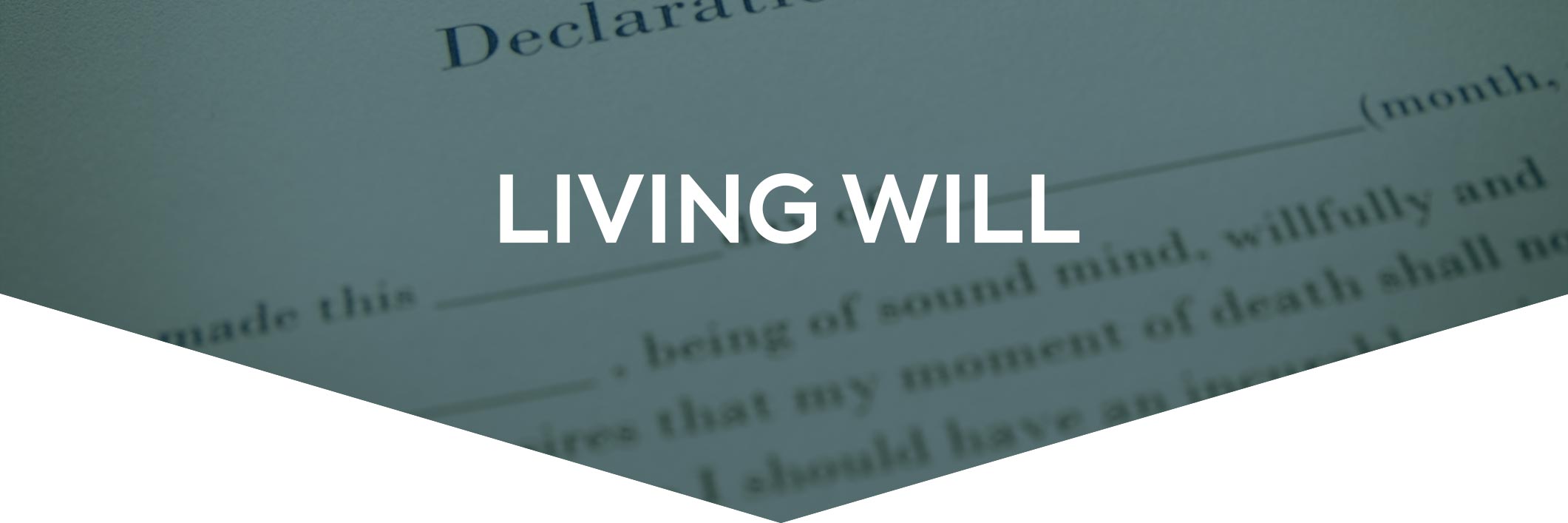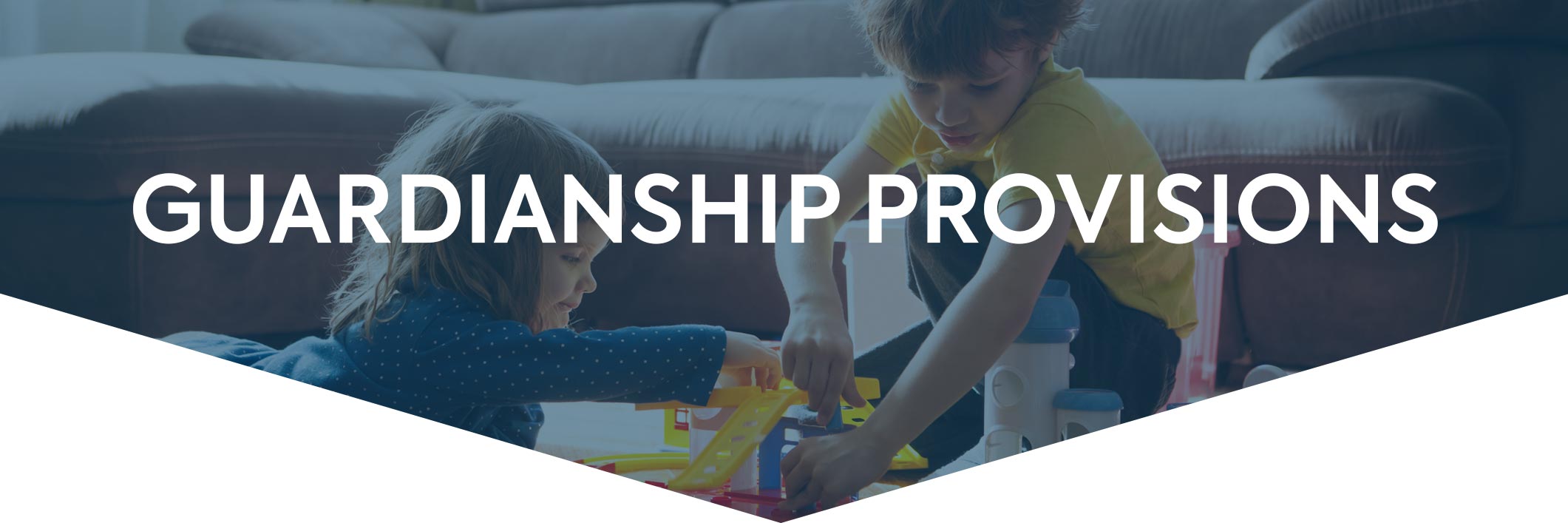
6 Life and Death Documents Every Person Should Have
December 14, 2020
 By Joe Twidwell
By Joe Twidwell
Senior Vice President & Trust Officer
Statistics show that less than half of adults in the U.S. have prepared even the most basic estate planning documents (and the numbers are much worse for young people with children in their care).
If you contracted COVID-19 or were involved in an accident that left you incapacitated, would you have documents that tell your family and doctor about your treatment directives? If you have children or dependents who rely on you as a caregiver, would you have any written directions of who should take over their care? If you're unable to handle your business affairs, would someone be authorized to take care of the basics like paying bills or authorizing emergency home repairs?
Even before 2020, everyone needed these documents in place. Unfortunately, most do not have them and for those that do, the documents are locked away and outdated. Why? There are many reasons we ignore these vital documents, and most stem from our belief that we are bullet-proof (“I am young and work out, what chance is there that something would happen to me?” ... “Disability and death are things that happen to other people.”)
In the words of the Bible, “Not so, Not so!”
And for those of you with documents, don’t be smug — you may not be out of the woods.
How COVID-19 has affected estate planning (for all ages)
The coronavirus pandemic may have thrown a wrench into estate planning document that were good before the pandemic. The nature of COVID-19 has resulted in many more young people being either incapacitated or comatose, but with a reasonable probability of recovery with treatments. Unfortunately, many estate planning documents primarily contemplated cases of stroke or heart attacks and a permanent vegetative state. They never envisioned so many people on respirators or being treated with newly discovered drugs still deemed “experimental,” until the pandemic.
As we get ready to begin a new year with hopes that the issues of 2020 and COVID-19 will be behind us, many will make New Year’s resolutions with the attempt to make 2021 better. If investing one hour of your new year may save trouble for you or your family — and may in fact save your life — would it be worth it?
Estate planning checklist: 6 important documents
Here are some estate planning documents everyone should have. And if you already do, you should make sure they're updated:

1) Power of Attorney (POA): If you were incapacitated in an accident or a health crisis, who is authorized to pay your bills or carry on your financial matters until you recover? Most businesses and service providers won't even discuss your account without written authorization. A Power of Attorney can help with this. But just like a gun or a knife, a power of attorney can be a very dangerous instrument in the wrong hands. Get good advice from your attorney, so it is done correctly. Do not just download a form online. (I used to skydive, and we always said that free-falling at 100 mph was the wrong time to figure out that your parachute was packed wrong).

2) Health Care Power of Attorney: Who do you want to make health care decisions if you cannot? When needed, a Health Care Power of Attorney is a matter of life or death. Who is your primary and who is the alternate? (Spouses often travel together and may both be involved in the same disabling accident.) If you have a Health Care POA, is it in your doctor’s medical file and have they agreed to honor it? What if your doctor is gone and another physician fills in? Several people have reported that at admission, their hospital made them sign a POA provided by the hospital. It may not match the one you had your attorney draft. If they are in conflict, which one will the doctor and hospital follow? In some cases, the hospital may default to their document, because they're familiar with it. However, this controlling document may not reflect your wishes.

3) Living Will: This document outlines the procedures and treatments that you may restrict, such as extraordinary measures. You may have an older Living Will that restricts the use of mechanical breathing devices or experimental medications. However, these treatments have become routine in severe COVID-19 cases where recovery is likely. If a hospital has limited ventilators and your document says that device cannot be used, following the outdated directive may well result in your death. Make sure you understand the wording in your document, and if you don’t, ask your attorney. Also make sure the Living Will is consistent with your religious beliefs. Just because a document is legal, does not mean that it moral or ethical under the tenants of your faith.

4) Will with Guardianship Provisions: Some people do not have a will because they believe you only need one if you have lots of money. This is false, especially if you have children. A will can direct the disposition of your assets, yes, but can also guide the court in the appointment of guardian/conservator for a minor or incapacitated child. Joint ownership of assets is not an adequate substitute for even a simple will. You need to visit your attorney and make sure your estate document has all of your bases covered, so your intent will be carried out.

5) Beneficiary Designation: Most people's biggest monetary assets are their retirement and insurance accounts. Many believe these are covered by the terms of their will, but that is not the case. By law retirement accounts, insurance policies and annuities pass to the beneficiaries named in the beneficiary designation form. Have you filled one out? Does the insurance company or retirement account custodian have a copy of it? Have you experienced a major life event since you last completed it (i.e. marriage, divorce, birth of child)? If you don't want the government deciding where these funds go, you need to keep your beneficiary designations current.

6) Digital Asset Directive: Last, but surely not least is the question of who you want to have access to your “digital assets.” Today, most people have their photographs and documents in the “cloud” and access is controlled by the companies they use. And don't forget about all those online financial accounts and automatic bill payments you have. Unless you want all that information to be inaccessible to your family, you need to have a document granting access to your account. It is not enough to merely give someone your password, since some companies will lock the account if the system believes the owner has died. Know what is needed before someone needs it.
Ask us anything, big or small.
While there are so many more things to consider, your attorney and financial advisor can help guide you to solutions that will save you family and friends, time, frustration and may in fact guide decisions that save your life. Our Wealth Management team works with respected attorneys, accountants and families planning for the future. If you would like to discuss this further and pick our brains for helpful ideas, feel free to contact us or schedule an appointment. We'll meet with you virtually or in person, however you're most comfortable.